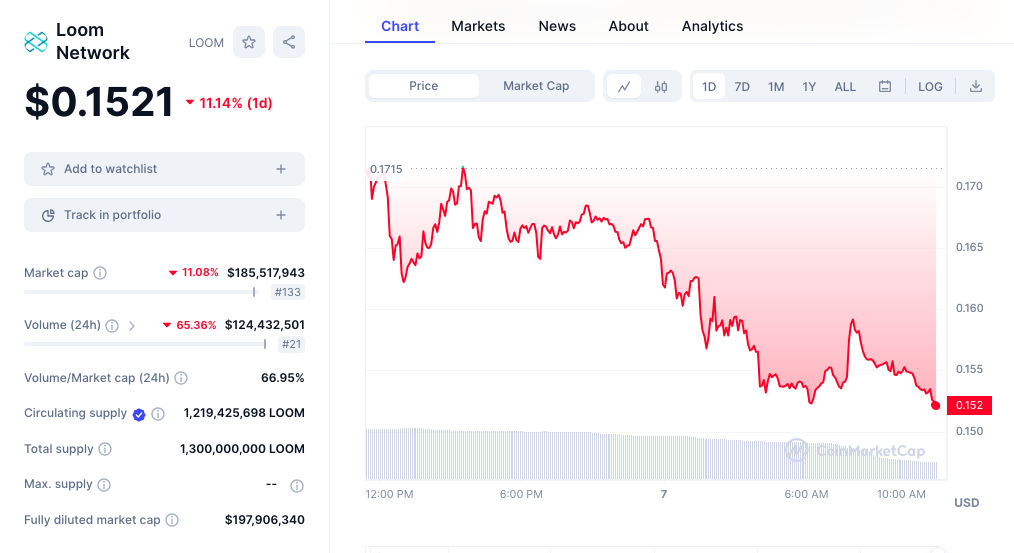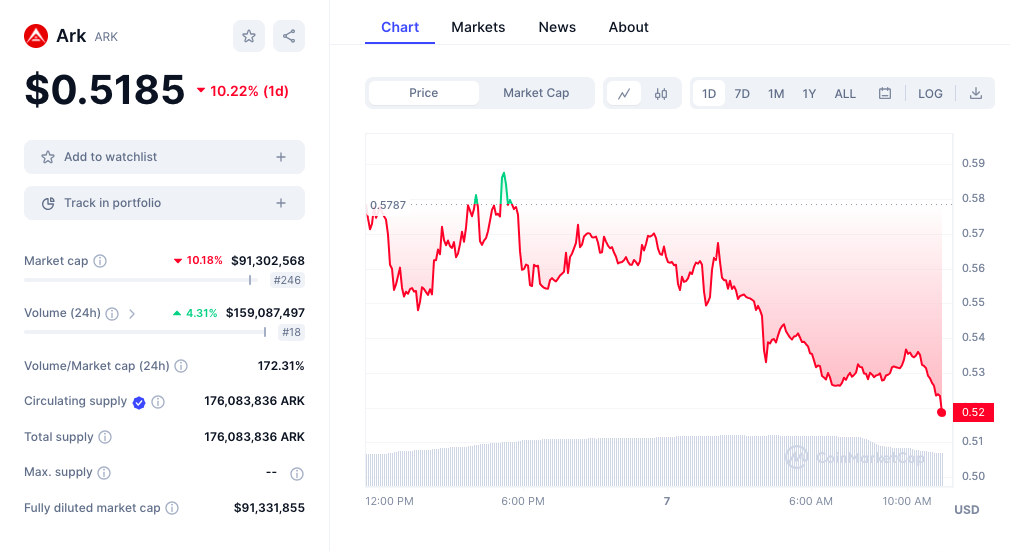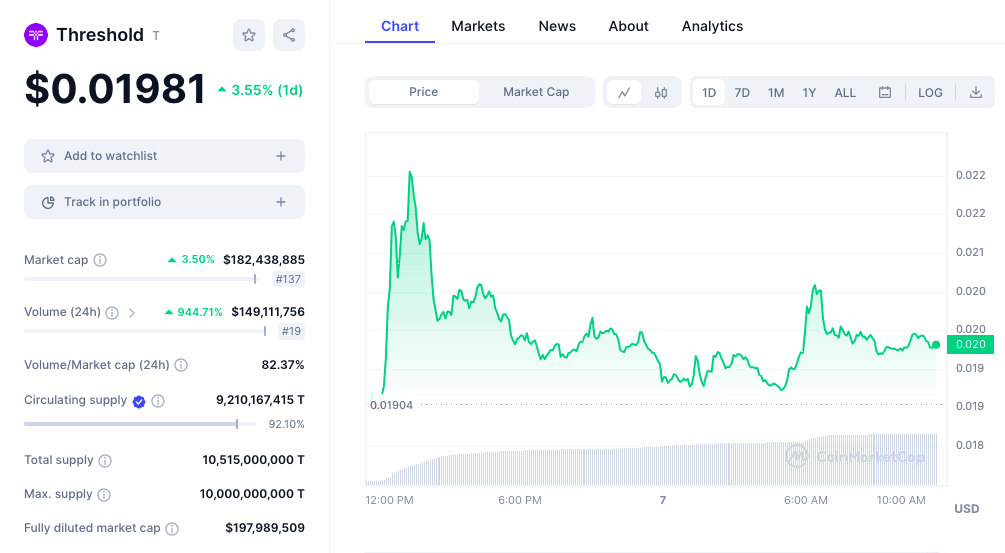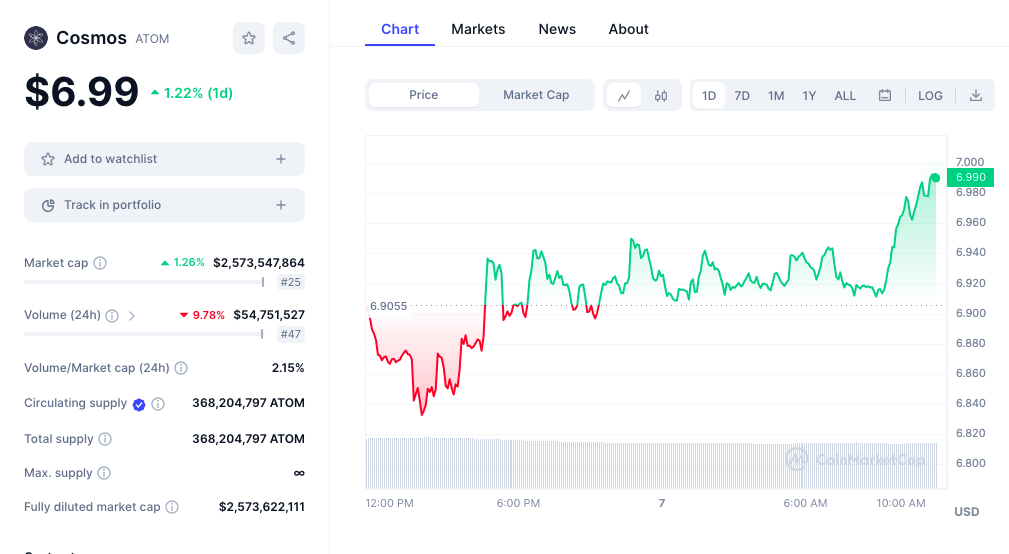Join Our Telegram channel to stay up to date on breaking news coverage
We cover some contenders for the best cryptocurrency to buy right now, potentially worth adding to your watchlist over the coming days. Previous posts on the same topic can be found here.
All cryptocurrencies are not the same. Most people lump these digital assets together and make lousy trading and investment decisions on that sentiment. Of course, at their peril, they find out how untrue the idea can be.
Apart from the gaping difference in the market performance of cryptos, these coins have separate projects, platforms, and infrastructure. So when cryptocurrencies come up against each other at a given time, for different reasons, some of them become the most viable option- the best cryptocurrencies to buy.
Best Crypto to Buy Now
Bonds and stocks are taking a beating in the market as inflation rates continue to bully both commodities. Naturally, cryptocurrency should endure the same fate, but analysts predict an upward tick for the digital asset.
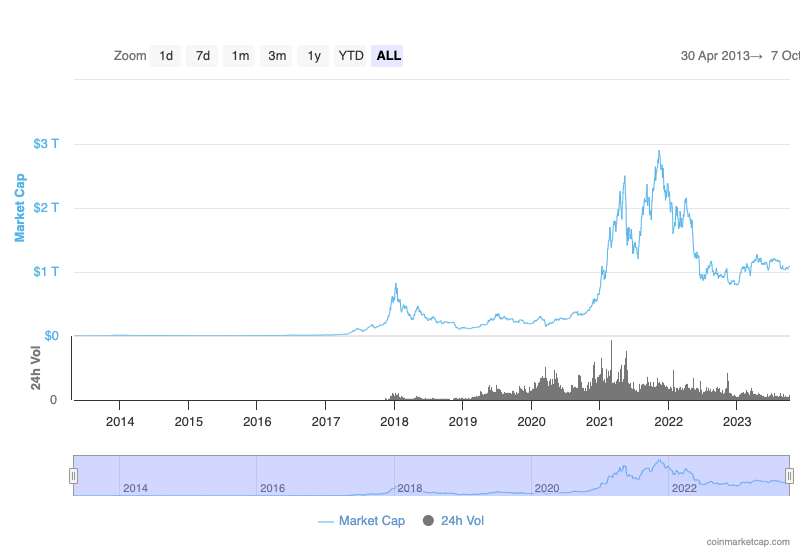
Global Crypto Market Cap Chart
As if to agree with this forecast, Bitcoin stretches to the $28,000 mark. It is looking like a good month for the crypto market.
1. Loom Network (LOOM)
Loom Network, launched on October 1st, 2017, operates as a platform as a service (PaaS) intricately woven into the Ethereum ecosystem. This innovative platform is a robust foundation for developers seeking to deploy and manage large-scale decentralized applications (dApps).
Many of you have been eagerly waiting for the launch of the zkLoom Testnet…
That day has finally arrived!
Our zkLoom Testnet, a zero-knowledge rollup for scaling Ethereum, is now live! 🚀
Start experimenting today with this quick-start 👉 https://t.co/q6TdtpNQ53
1/3
— Loom Network (@loomnetwork) June 20, 2023
The primary objective of Loom Network is to empower application developers by providing smart contracts with enhanced computational capabilities. This achievement of this goal means developers can tap into substantial computing resources when needed or maintain the same computing power at reduced costs. Such flexibility proves invaluable for various use cases, including onboarding new users or facilitating applications that don’t require the entire security apparatus of a traditional blockchain.
One distinguishing feature of the Loom Network is its capacity to interact with third-party APIs (Application Programming Interfaces) that exist off the blockchain. This versatility positions Loom as a comprehensive platform that enables smart contract developers to craft applications without switching to an entirely different programming language. Consequently, developers can seamlessly integrate their applications with external services and data sources.
At the core of the Loom Network’s architecture is its utilization of Plasma technology. Plasma serves as a scaling solution, enhancing the throughput and speed of transactions within the network. This technology is instrumental in achieving faster and more efficient operations across the Loom Network, further solidifying its position as an essential platform for decentralized application development.
2. Ark (ARK)
ARK is a blockchain-based development platform testament to decentralization and customization within the cryptocurrency and blockchain. Founded in the middle of 2016, ARK swiftly gained momentum through its Token Exchange Campaign (TEC) later that year, successfully raising $800,000 in Bitcoin and various other cryptocurrencies. This early financial success laid the foundation for ARK’s journey towards becoming a well-funded entity.
On March 21, 2017, the ARK Public Network debuted, marking the birth of the native ARK cryptocurrency. Following this milestone, the ARK Ecosystem Strategic Core Infrastructure Cooperative (SCIC) was established to oversee the project’s development and operations. Often referred to as “ARK.io,” this entity has become synonymous with the ARK brand and is the project’s official website.
Here’s our newest edition of our weekly development report highlighting the main releases and progress on ARK productshttps://t.co/ODYAGJYAEy pic.twitter.com/bJOQaYKIHp
— ARK.io (@ArkEcosystem) October 6, 2023
The ARK Ecosystem encompasses a robust and open source blockchain technology stack primarily authored in the TypeScript programming language. A diverse array of components characterizes this ecosystem. This network serves as a live embodiment of ARK’s technology, with node operators functioning as delegates on the network.
Independent blockchains run on ARK technology, each with its set of node operators and unique use cases. Entities within the ARK Ecosystem play a pivotal role in both product development powered by ARK and the maintenance of the codebase.
This division is focused on driving the adoption of ARK technology in enterprise settings. The ARK community comprises users, developers, and service providers who actively participate in the growth and development of the ecosystem.
ARK’s technology stack is enriched with particular transaction types, including multi-payment, multi-signature, various registration transactions, and IPFS hash transactions.
One of ARK’s notable offerings is the Launcher product, which simplifies the creation of fully customizable and interoperable blockchains through a user-friendly graphical interface. This “plug and play” approach empowers developers to leverage ARK’s consensus model, technology stack, product lineup, and custom transactions to build tailored blockchain solutions. ARK’s dedication to customization and interoperability positions it as a notable player in blockchain development.
3. Threshold (T)
The Threshold network is a prominent player in the blockchain space, serving as a crucial provider and custodian of various cryptographic primitives that underpin the functionality of numerous decentralized applications (dApps). This network’s significance and capabilities have been further amplified by the culmination of a protocol merger between two notable blockchain projects: the Keep Network and NuCypher.
The protocol merger, a significant event in the blockchain world, was officially completed on January 1, 2022, and marked by the launch of the T token. This merger effectively unified the strengths, resources, and technologies of Keep Network and NuCypher under the Threshold network umbrella. The resulting amalgamation not only streamlined the operation of both networks but also solidified their position as a robust and cohesive entity within the blockchain ecosystem.
Redemptions were DoS'd by an unknown party over the weekend. A patch has been released that fixes the issue, and node operators are in the process of installing the update.
At this time, the remaining pending FTX Exploiter redemption transactions are not expected to process.
A…
— Threshold Network ✜ (@TheTNetwork) October 6, 2023
The Threshold network’s suite of cryptographic primitives plays a pivotal role in enabling the secure and efficient operation of various dApps. These cryptographic tools are the building blocks for implementing advanced security, privacy, and cryptographic functionalities within decentralized applications. As such, the Threshold network is central in supporting the development and operation of decentralized solutions across the blockchain landscape.
4. Cosmos (ATOM)
In essence, Cosmos positions itself as a blockchain project dedicated to resolving some of the most challenging issues facing the blockchain industry. Its overarching objectives encompass solving the problems associated with slow, expensive, unscalable, and environmentally detrimental proof-of-work protocols like those employed by Bitcoin. It achieves this by introducing an ecosystem of interconnected blockchains.
Cosmos doesn’t stop at addressing scalability and efficiency; it also aims to simplify blockchain technology for developers. This simplification is achieved through a modular framework that demystifies the development of decentralized applications (dApps), making it more accessible and developer-friendly. Moreover, the project introduces an Interblockchain Communication (IBC) protocol, facilitating seamless communication between different blockchain networks. This interoperability helps prevent fragmentation within the blockchain industry.
Hackmos Begins 💥
Get ready to experiment with the Interchain Stack at the #Cosmoverse Hackathon.
This is everything you need to know 👇
You can register via the main website: https://t.co/VuST9BthiM
Find here detailed info for tracks & bounties: https://t.co/JMUDCBGhZ9
🗓️… pic.twitter.com/pVWPYcVIzD
— Cosmos – The Interchain ⚛️ (@cosmos) October 6, 2023
The origins of Cosmos trace back to 2014 with the founding of Tendermint, a core contributor to the Cosmos network. Subsequently, in 2016, a white paper outlining the Cosmos project was published, followed by a token sale in the subsequent year. ATOM tokens, earned through a hybrid proof-of-stake algorithm, play a pivotal role in maintaining the security of the Cosmos Hub, the project’s flagship blockchain. Additionally, ATOM tokens are integral to the network’s governance, where token holders have a say in decision-making processes.
5. Bitcoin BSC (BTCBSC)
The Bitcoin BSC project stands as a unique amalgamation of the fundamental value proposition of Bitcoin and the innovative capabilities offered by the Binance Smart Chain (BSC) platform. This presale token brings a sophisticated staking mechanism focusing on efficiency, sustainability, and investment potential. Additionally, it strongly emphasizes recognizing and rewarding long-term token holders as an expression of gratitude for their unwavering support of the platform. These distinctive attributes firmly position the presale token as a standout player in the cryptocurrency landscape.
A crucial reminder for the #CryptoCommunity!
Be on guard for potential #BitcoinBSC impersonators!
🔒 Never disclose any of your personal information.
🔍 Always verify website links and profiles. pic.twitter.com/ceiZsfGLhp— Bitcoinbsc (@Bitcoinbsctoken) October 6, 2023
Operating as a BEP-20 token on the Binance Smart Chain, Bitcoin BSC places significant importance on staking as a viable and environmentally friendly alternative to traditional Bitcoin mining practices. Holders of $BTCBSC tokens can generate passive income by participating in the staking process, with rewards directly linked to the number of tokens staked. This innovative concept closely mirrors Bitcoin’s original block reward structure, introducing a layer of familiarity to this novel approach.
A notable feature of Bitcoin BSC is its environmentally conscious Stake-to-Earn model, offering a sustainable alternative to Bitcoin’s resource-intensive Proof-of-Work mechanism. This model aligns with Bitcoin’s historical milestones, including its extended issuance schedule spanning approximately 120 years and its block confirmations dating back to April 2011.
Within the Bitcoin BSC ecosystem, staking rewards are determined by an individual’s stake in the staking pool and the prevailing Annual Percentage Yield (APY). This unique and innovative model promotes decentralization and active community participation, ensuring ongoing growth within the token ecosystem.
Bitcoin BSC stands out by actively encouraging long-term holding and active engagement within the community through staking. It empowers its community members to play an integral role in network expansion and sustainability while minimizing their environmental footprint. This project represents a significant evolution of the traditional Bitcoin model, ushering in a new era of environmentally conscious and community-driven cryptocurrency participation.
Read More
Best Wallet - Diversify Your Crypto Portfolio
- Easy to Use, Feature-Driven Crypto Wallet
- Get Early Access to Upcoming Token ICOs
- Multi-Chain, Multi-Wallet, Non-Custodial
- Now On App Store, Google Play
- Stake To Earn Native Token $BEST
- 250,000+ Monthly Active Users
Join Our Telegram channel to stay up to date on breaking news coverage


